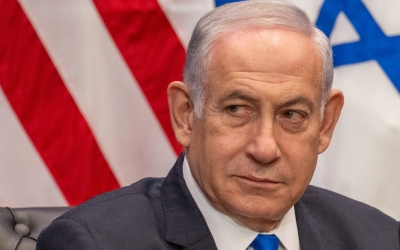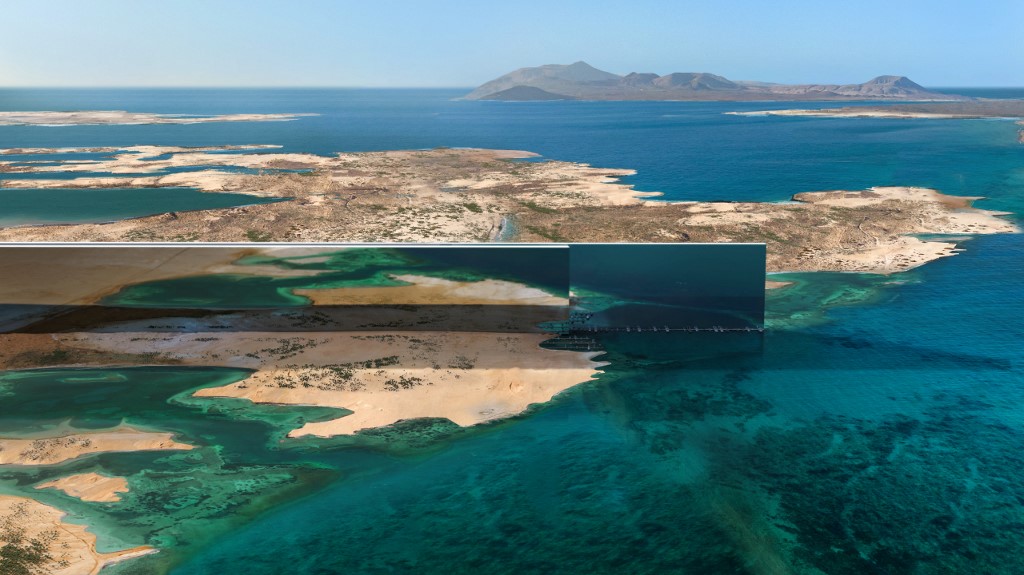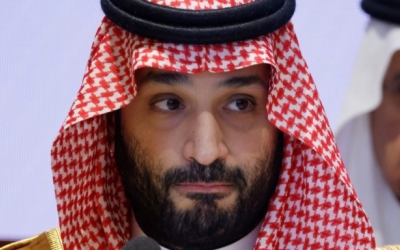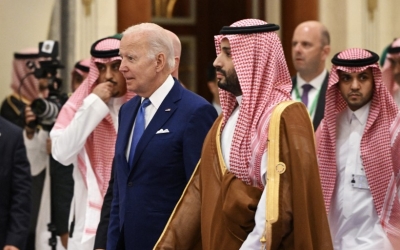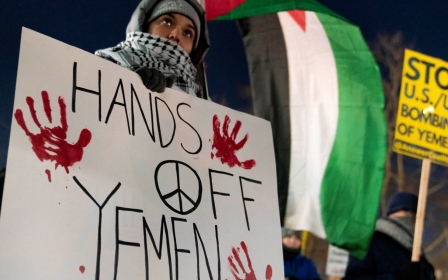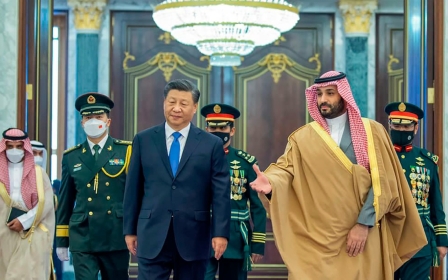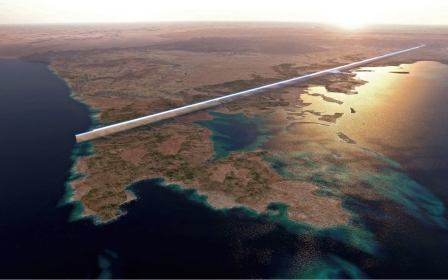Why Saudi Arabia's future now depends on 'zero problems with neighbours'
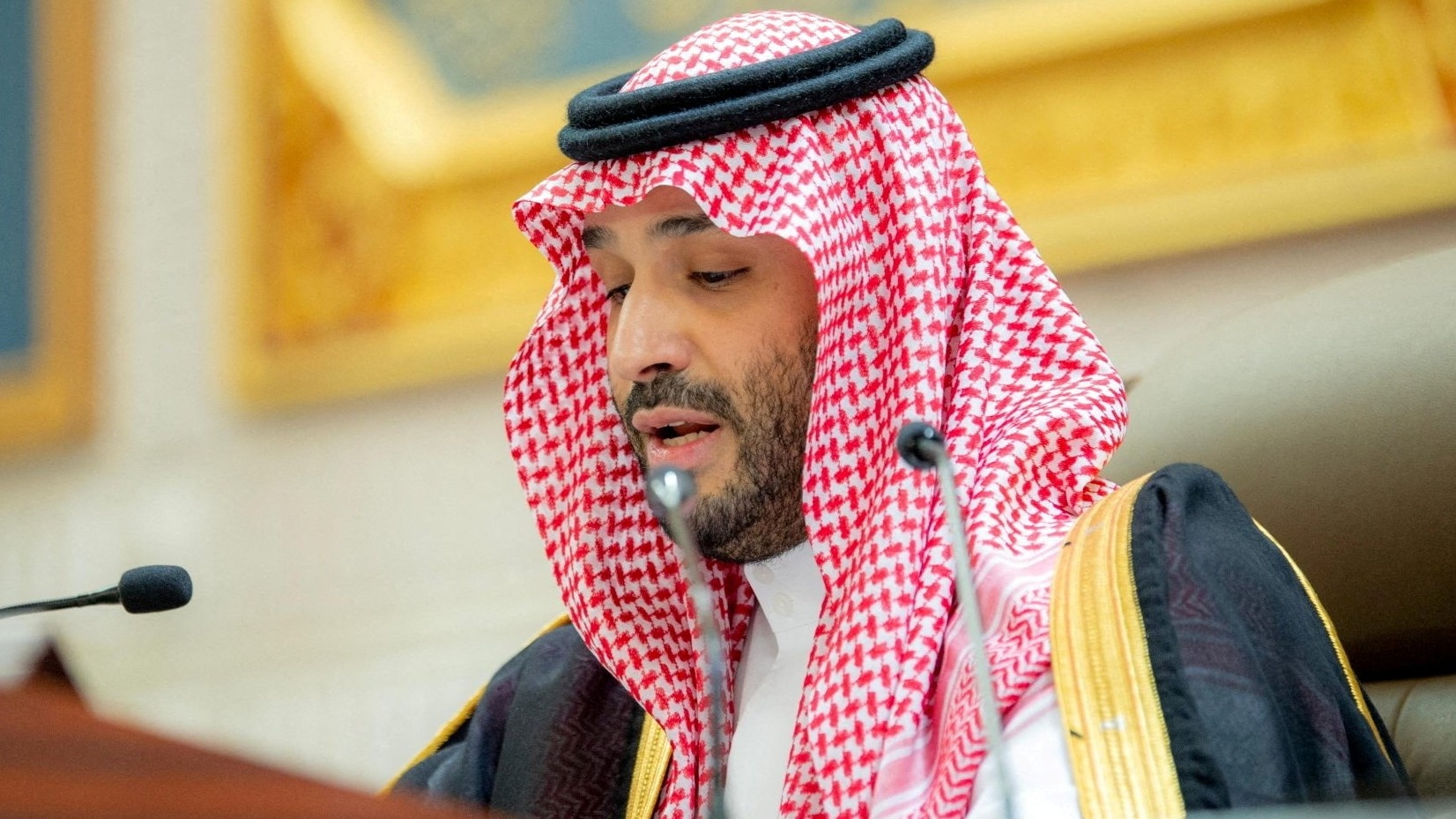
When the Islamist AKP came to power in Turkey in 2002, it was determined to turn a new page with Middle Eastern countries with a policy known as “zero problems with neighbours”.
Under Foreign Minister Ahmet Davutoglu’s guidance, the policy saw an efflorescence of political and economic ties with countries that the Kemalist military had previously kept at arm’s length - until it all came crashing down with the Arab Spring uprisings and Turkey’s support for parties to the ensuing conflicts.
Now zero problems is making a return, in perhaps the most unlikely of places: Saudi Arabia.
When King Salman came to power in 2015 and placed control of all policy in the hands of his favourite son, Mohammed bin Salman - anointed crown prince in 2017 - the kingdom was at odds with numerous regional political forces. During the king’s first months in office, western countries signed the Iran nuclear deal and the Iran-allied Houthi movement in Yemen tried to extend their rule down to Aden after seizing power in Sanaa.
Worry about potential domestic opposition was still raw despite the 2013 coup against a Muslim Brotherhood-led government in Egypt.
New MEE newsletter: Jerusalem Dispatch
Sign up to get the latest insights and analysis on Israel-Palestine, alongside Turkey Unpacked and other MEE newsletters
The new leadership’s posture was paranoid and bellicose. A war was launched in Yemen in an effort to restore the ousted government.
As Houthi drone and missile capabilities improved, enabling them to begin firing at targets inside Saudi Arabia, the kingdom threatened to sponsor Iranian opposition groups staging attacks inside Iran.
Bin Salman forced Lebanese Prime Minister Saad Hariri to resign in fury at his inability to check the power of Hezbollah after beating him up during a detention in Riyadh.
Riyadh launched the Qatar boycott in an effort to crush Doha’s support for Islamists in 2017, and in 2018 orchestrated the murder of regime insider-turned-critic Jamal Khashoggi in Istanbul.
Regional laughing stock
Yet this hawkish approach came to a sudden halt with the Aramco attacks in September 2019. Several months before, oil tankers in UAE waters had come under attack. Now it was Saudi Arabia’s turn, with an early morning drone and missile barrage that was precise enough to take out five percent of global oil production for several weeks.
Worse still, the US, Saudi Arabia's decades-long ally, failed to step up, despite President Donald Trump’s constant egging on of Bin Salman throughout his administration. Trump released strategic oil reserves to stabilise markets and declared the US military was “locked and loaded” to respond. But beyond that, no concrete response to Iran’s daring move materialised - and the shock to the Saudi leadership was profound.
The next year, the Democratic candidate Joe Biden won the presidential election, with a vow to curb arms sales to Riyadh over its war in Yemen, and the Covid pandemic hit. These two events gave the Saudi leadership the space to rethink a muscular foreign policy that hadn’t just failed to produce results, but had in fact made Saudi Arabia something of a regional laughing stock.
What emerged next was one of the most remarkable U-turns of modern Middle East politics.
The brazen politics instituted by King Salman was accompanied by an equally fantastical policy in the economic realm.
In 2016, Bin Salman launched a 15-year project of drastic socio-economic reform that aimed to transform the kingdom from an insular, highly conservative, petrodollar state into a socially liberal economic powerhouse no longer reliant upon oil and gas reserves, one in which the latent powers of a formerly repressed society would be unleashed.
“Our people will amaze the world again,” the original Vision 2030 document declared, imagining the country as a new Silicon Valley that would drive the global economy of the future.
At the centre of this vision is a series of giga-projects - other-worldly new cities like Neom in the far northwest of the country that could only have emerged from the mind of a gamer like the crown prince, featuring a 170km horizontal city called The Line and a series of futuristic resorts for the ultrarich called collectively Magna.
Or a downtown area of Riyadh called the New Murabba, featuring a cube structure big enough to contain 30 Empire State Buildings. Or the regenerated historical district of Riyadh called Diriyah, or the sports and entertainment city Qiddiya.
The tourism projects extend all the way down the Red Sea coast, including the Red Sea Global resorts near Al-Wajh, the Jeddah Central project and the Ardara development in the mountains of Abha. Some of them, like the “extreme sports” oil rigs off the Gulf coast near Dammam, called The Rig, seemed downright ridiculous.
Complete about-face
It’s no exaggeration to say the Saudi leadership has gambled its future on these monstrous plans. The Public Investment Fund, which owns and manages the projects, has around 168 subsidiaries in total, most of them local, and collectively they have been valued at over $1.25tn.
Now the pressure is on to make them a reality after the government won the rights to host the 2029 Asian Winter Games in the Neom mountain resort of Trojena, the 2030 World Expo in Riyadh, and the 2034 football World Cup - which will be the jewel in the crown of Vision 2030.
Already funding problems have kicked in, with global oil prices failing to hit Saudi Arabia’s current breakeven price of $96 per barrel and foreign direct investment far below a targeted $100bn per year by 2030.
So the last thing the Saudi regime needs is political problems with neighbours, and it’s that realisation that has caused a complete about-face on Yemen, Iran and, since the Gaza war erupted last October, on Israeli-Palestinian peace too.
Just before a formal ceasefire was agreed with the Houthis in April 2022, the Saudi leadership got a sense of where things were going without drastic action. Houthi missiles and drones struck an Aramco distribution plant in Jeddah, a desalination plant and targeted Riyadh. The Yemen intervention was not only causing global reputational damage and blocking access to US weaponry, it was threatening to cause serious economic harm, too.
Since then Riyadh has been on a crusade to agree peace terms with the Houthis, who are firmly ensconced as the war’s victors in Sanaa, and then force its Yemeni allies into their own peace talks with the Iran-backed Zaydi Shia group.
The Houthi attacks on Red Sea shipping have forced the Saudis to put brakes on the plan for now, but the need for the ceasefire to hold saw Riyadh intervene in July to force its allies in Aden to back down in their campaign to have Sanaa cut off from the global banking system.
All it took for this intervention was a speech from Houthi leader Abdulmalik al-Houthi threatening to restart the attacks if the Saudis didn’t step in. In the months before 7 October, a Saudi delegation had visited Sanaa and a Houthi delegation was then received by the defence minister, Bin Salman’s kid-brother Khaled, in Riyadh.
Global shift
This stunning reversal on Yemen after a war that at one point the UN was calling the worst humanitarian crisis in the world, was underpinned by another volte-face when Saudi Arabia and Iran agreed to normalise relations in a deal brokered by China in March 2023.
Since then, what some observers thought would amount to a cold peace has moved at a brisk pace, with ambassadors back in place in each country, agreements to boost bilateral trade and regular consultations over the Gaza crisis.
As for the Qatar boycott, it was formally ended in January 2021 when Gulf leaders, including Qatar’s Emir Tamim, gathered amid a flood of mediatised hugs at one of the Saudi mega projects, the Nabataean ruins of AlUla, which have transmogrified into a wellness and adventure tourism resort. Now the government is even enticing Qatari investors to put money into some Vision 2030 projects, especially mining - another field where Saudi Arabia wants to be a global player.
The latest turnaround concerns Israel. Bin Salman has long been seeking a way to normalise ties, mainly for concessions he could extract from the United States in return. It was clear, even during the first months of Israel’s Gaza campaign, that his government had little taste for the pro-Palestinian politics of earlier eras.
In the early stages of the war, the subtext to messages blasted daily on social media platform X by his buddy Turki Alalshikh, the head of the General Entertainment Authority, was that nostalgia and emotions must not stop the inevitable march of progress.
Just before 7 October, it looked like Bin Salman was about to get his way. Israeli Prime Minister Benjamin Netanyahu was crowing about an imminent “dramatic breakthrough”, in which Saudi Arabia would get a defence pact with the United States in return for peace with Israel. The Palestinian Authority would be offered nothing more than a vague peace plan, which suited the Saudi and Israeli leaders just fine.
That was then. Now the conflict has dragged on far longer than anyone imagined. Israel is apparently on a path to pariah status in some parts of the world. The International Court of Justice has ruled that Israel could be guilty of genocide, and the chief prosecutor of the International Criminal Court is seeking arrest warrants against Israeli leaders for suspected war crimes and crimes against humanity.
The social reforms have been real, if a little top-down, but it’s only the urban affluent who are attending the state-organised music raves and jazz festivals
The Saudi position has hardened in response to this global shift. The US-Saudi defence pact is still on the agenda but decoupled from the Israeli part because Riyadh now insists on a Palestinian state.
Politically, it has become tough for Saudi Arabia to allow itself to be painted as selling out a cause Bin Salman previously had little time for - the memories of Anwar Sadat and Yitzhak Rabin casting long shadows.
Many things haven’t changed in Saudi Arabia - the domestic repression is worse than ever, not least for expressions of support for Palestine. Tribesmen have been brutally erased from their lands to make way for outrageous vanities like The Line.
The social reforms have been real, if a little top-down and elitist: women can drive and soccer fans can see idols like Cristiano Ronaldo in the flesh, but it’s only the urban affluent with westernised tastes who attend the state-organised music raves and jazz festivals.
Saudi Arabia is still a highly conservative society and pilgrimage accounts for half of rising tourist numbers.
But the foreign policy trajectory under the Salmans has been a roller-coaster ride of radical twists and turns, underpinned by one over-riding regime obsession: the Vision Thing must work.
The views expressed in this article belong to the author and do not necessarily reflect the editorial policy of Middle East Eye.
Middle East Eye delivers independent and unrivalled coverage and analysis of the Middle East, North Africa and beyond. To learn more about republishing this content and the associated fees, please fill out this form. More about MEE can be found here.



